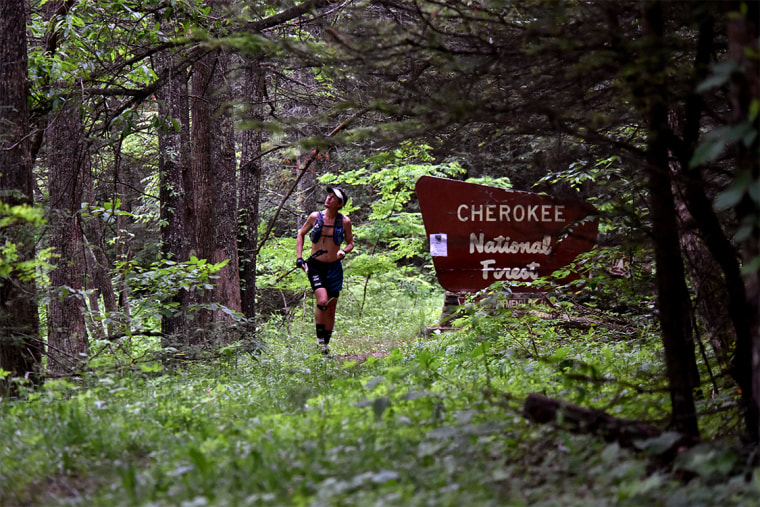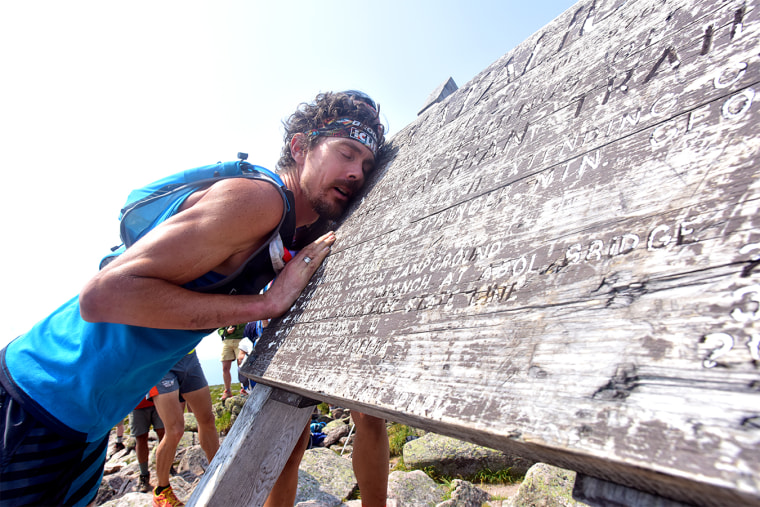For a few days, Scott Jurek believed he would fail. The vegan ultrarunner (an athlete who competes in races longer than the traditional marathon distance of 26.2 miles) was running the Appalachian Trail— a 2,168-mile path that cuts a swath through the eastern United States — and hoped to beat the speed record for its completion.
But toward the end of the trek, he feared he would crash. “I did not think I was going to get the record,” Jurek told TODAY. “I had just resigned myself to the fact that it is not going to happen. I was completely devastated.”

At the beginning, Jurek ran 13- and 14-hour days, covering about 50 miles daily. When faced with failure, he increased his pace, eschewing sleep to spend as much as 20 hours a day running and hiking.
“I had gotten so close, and to watch it slip away,” he said. Still, he decided: “I am going to finish. I am still going to have an amazing experience and I was going to get to the top [of Mount Katahdin].”
Spoiler alert: In 46 days, eight hours, and seven minutes Jurek finished, breaking the record for fastest completion of the Appalachian Trail for a supported trip.

Even before the push, the adventure felt grueling. Running for 50 plus miles a day meant Jurek needed to consume 7,000 calories a day. Luckily, Jurek loves eating; he shared some of his favorite recipes in a new book “Eat and Run.” See his recipes here.
About 3,000 of those calories he ate while running; Jurek can even eat a burrito while maintaining a seven-minute mile pace.
(Just eating a burrito from a plate seems challenging for many, but Jurek explained he eats small frozen burritos and that breathing through his nose and hydrating makes it easy for him to eat and run, no matter the cuisine. Still, despite keeping his calorie intake up, he lost about 20 pounds.)
RELATED: Natalie Morales and Erica Hill share why they run
Though eating on the run and grappling with injuries presented loads of problems,it was the mental obstacles that most often felt overwhelming. After Jurek finished a day at 11 p.m. and wanted nothing except sleep, his brain would remind him he had to get up the next day and do it all over again.
“Realizing the enormity of it, I had to break it down into smaller, manageable pieces, shift my thinking in smaller segments: 'I am just going to do 11 or 12 miles and see my wife and support group.'”

Jurek’s wife, Jenny, acted as his support crew, driving the trail and meeting him at intersections. (He ran the trail supported, meaning he did not carry his own supplies.)
But Jenny wasn’t the only person supporting him. Friends would meet him on the trail and run with him; people living nearby often ran with him, brought him food or asked for pictures. While some runners complain that fans slow the pace, Jurek believes the support kept him going.
RELATED: Jenna Wolfe shares how to get bigger benefits from running
Now Jurek says he’s exercising like a regular person. At 41, he knows he can’t keep breaking records forever, but he wants to continue pushing himself.
“As far as racing and winning, those days are going to dwindle,” Jurek told TODAY. "In sports there is a lot of focus on the short-term gains, and the beauty of ultrarunning is you get better by experiencing and training and learning about your body.”